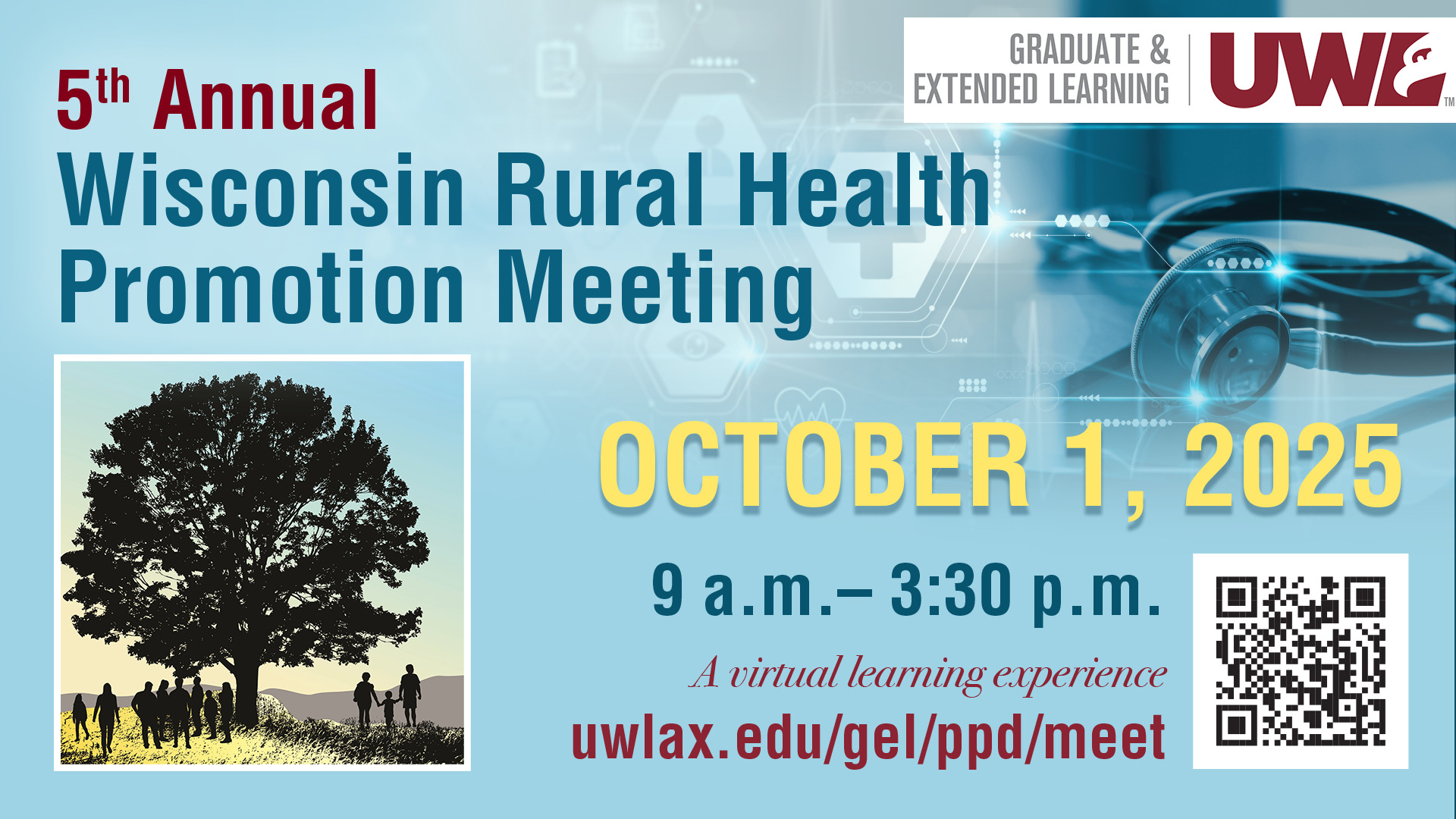Undergraduate program
Public Health & Community Health Education
Undergrad majorPublic and community health professionals work to address the many factors that determine overall health status in the population. From addressing disease outbreaks to promoting clean air to supporting individuals' mental health, public health encompasses all aspects of a population's well-being. Public health is everything, and everything is public health.
Graduate programs
Healthcare Administration
Graduate degree The online MS in Healthcare Administration offers busy adults a flexible education to advance into leadership roles. CEPH accredited seal
CEPH accredited seal
The Bachelor of Science in Public Health program at the University of Wisconsin La Crosse is currently accredited by the Council on Education for Public Health (CEPH) as a standalone baccalaureate program (SBP)
Featured courses
View all coursesGet assistance
Latest news
 Finding your pace and potential
UWL student inspires confidence, leadership in young girls though after school running club
Finding your pace and potential
UWL student inspires confidence, leadership in young girls though after school running club
 Lessons for life
First Year Seminar course empowers students with knowledge, reflection
Lessons for life
First Year Seminar course empowers students with knowledge, reflection
 Returning 31 years later
Master’s program graduate shares insights from her lifelong educational journey
Returning 31 years later
Master’s program graduate shares insights from her lifelong educational journey













